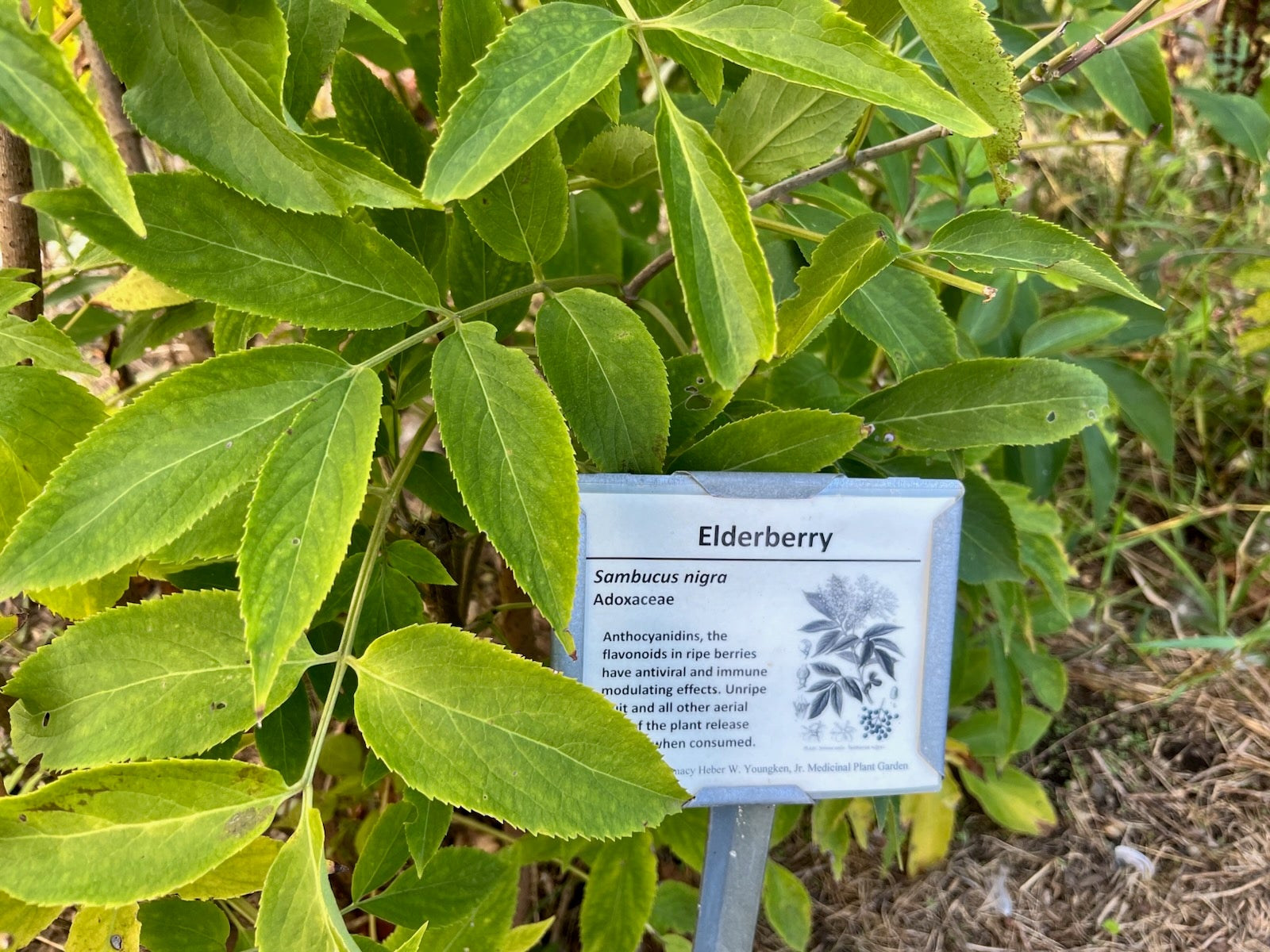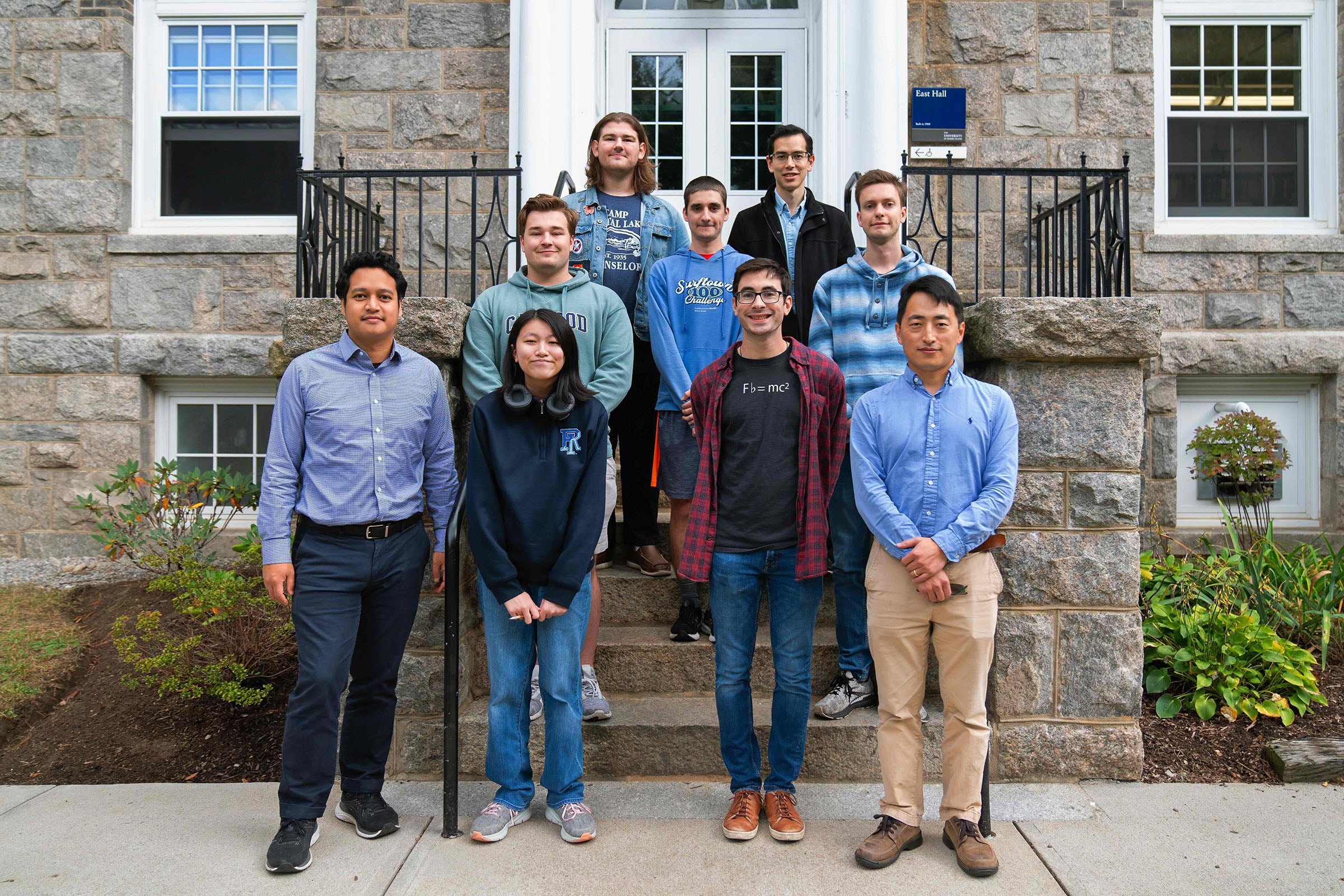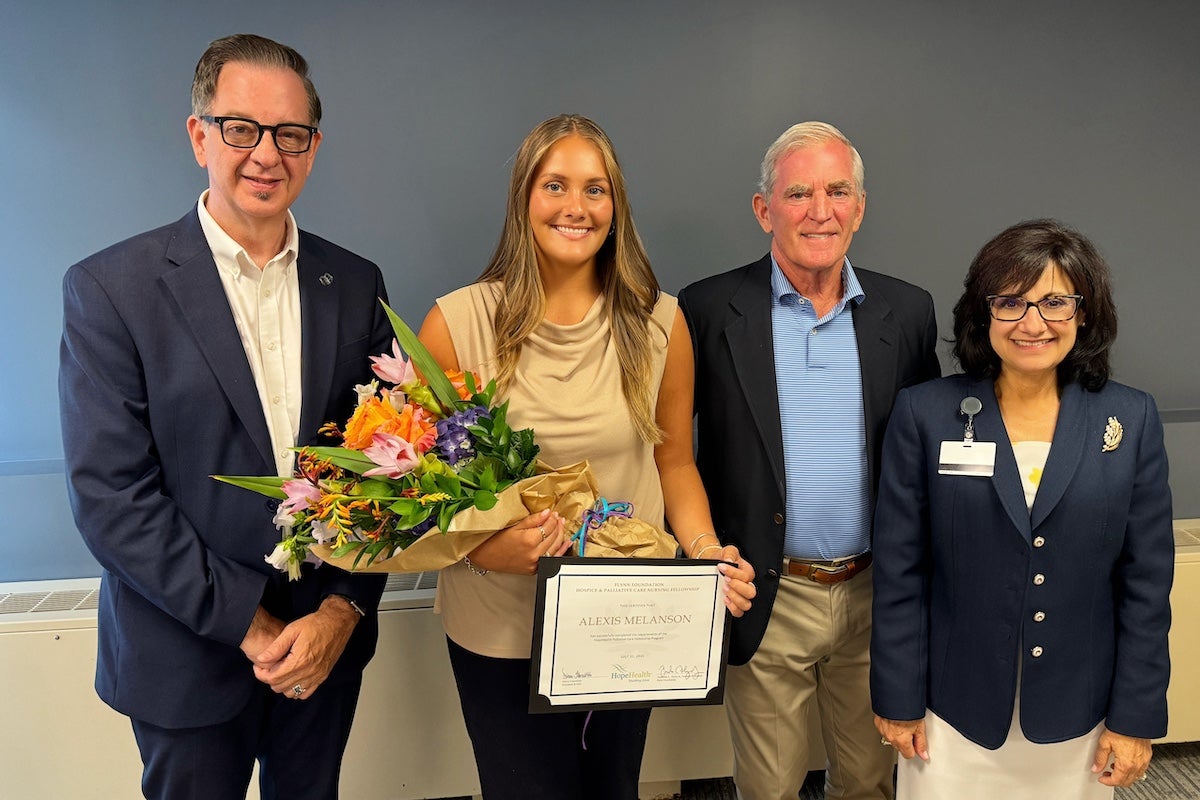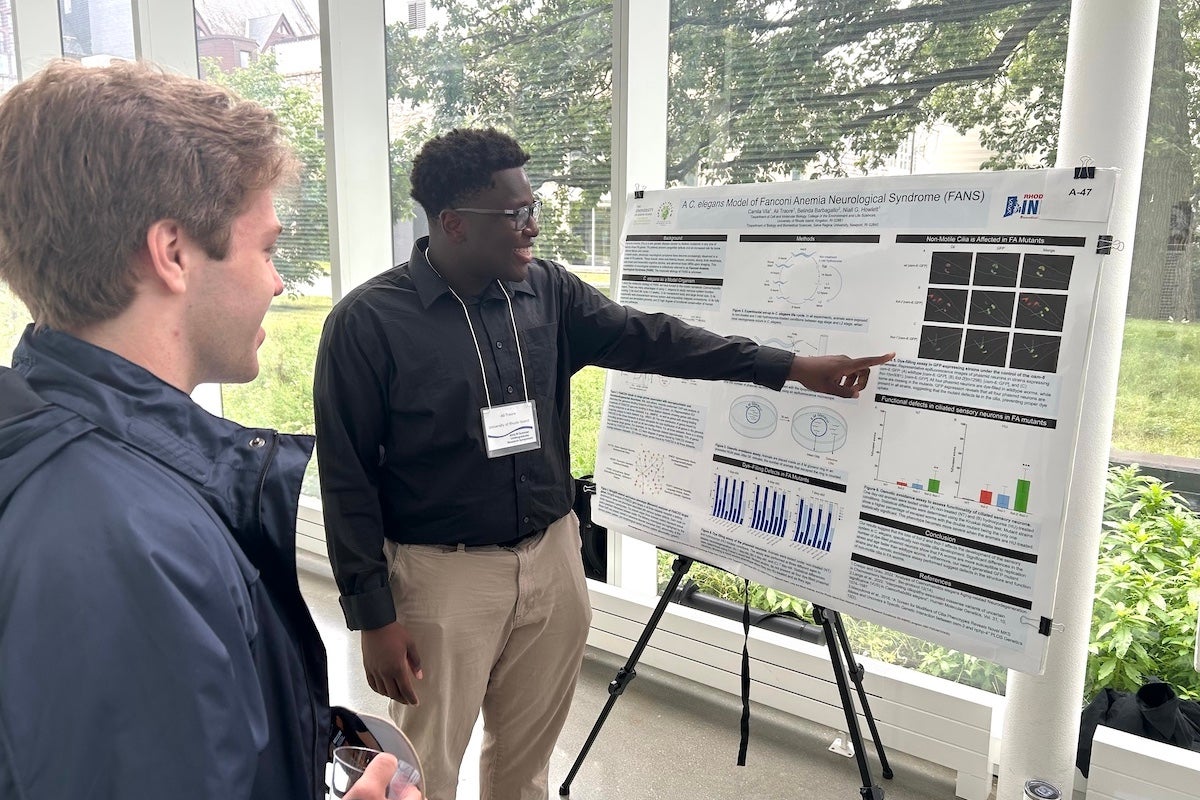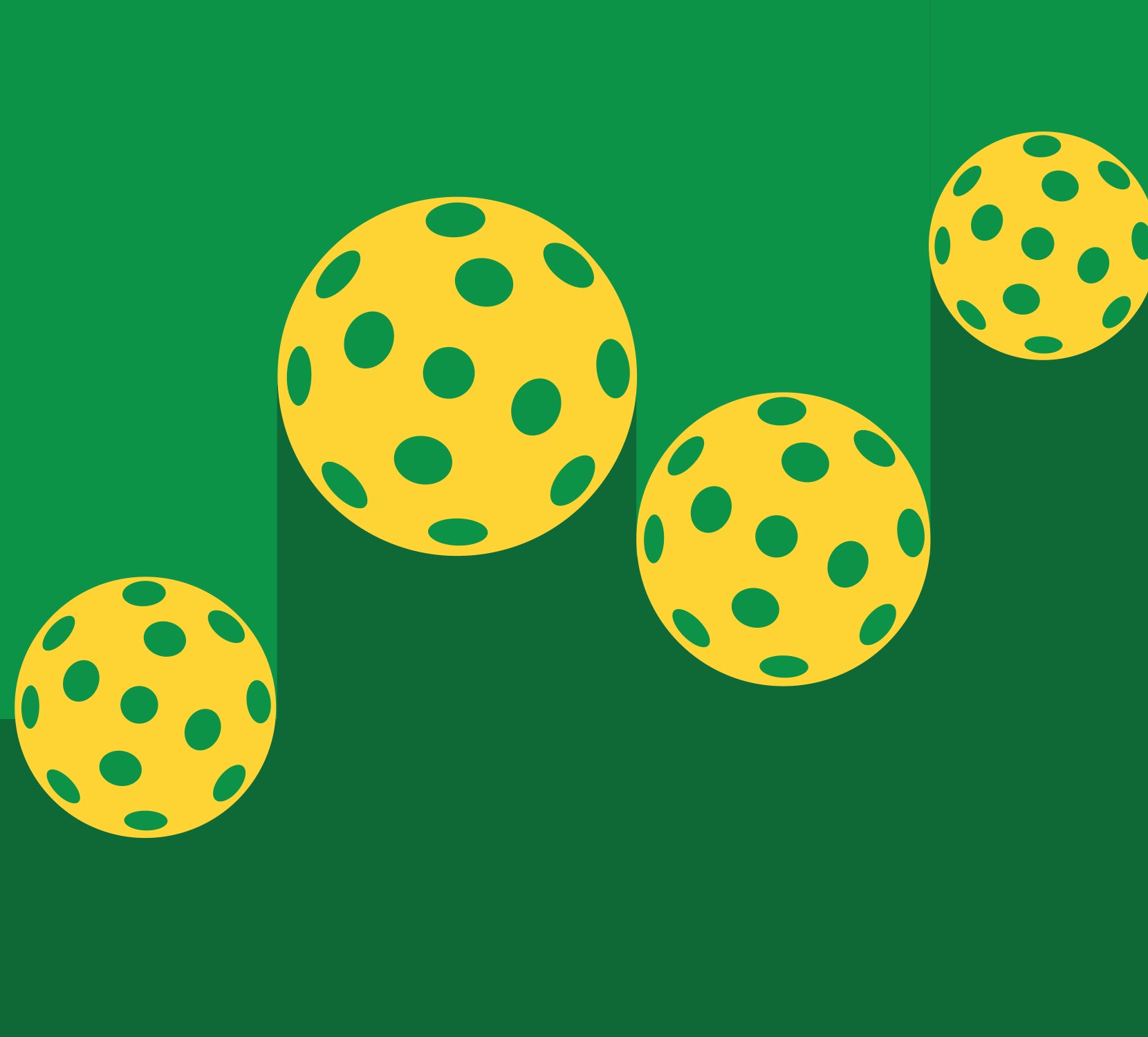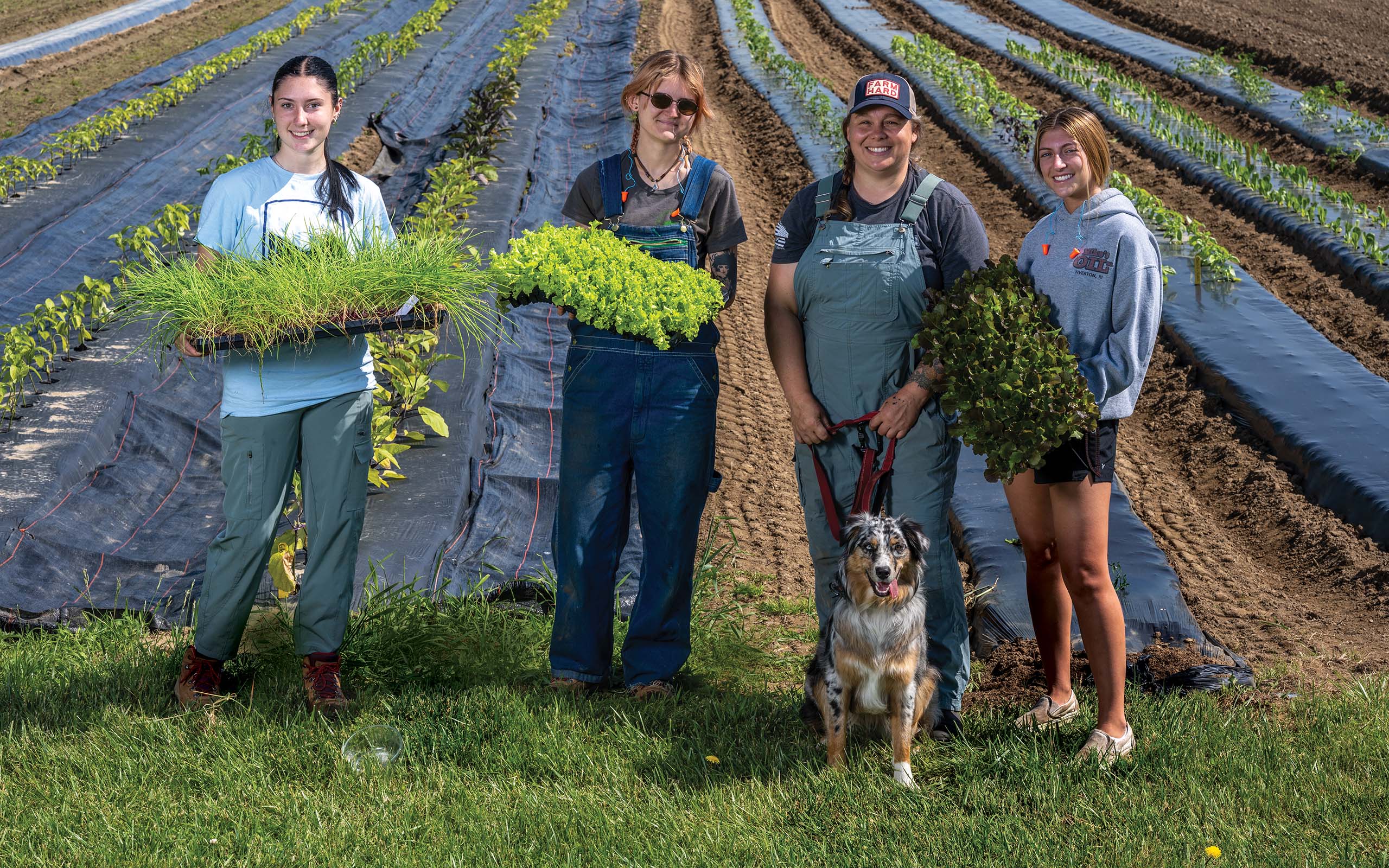URI’s medicinal garden offers up-close look at the roots of modern medicine, open to the public
KINGSTON, R.I. – Aug. 12, 2025 – We don’t know if Heber W. Youngken Jr. was a Joni Mitchell fan but his namesake garden at the University of Rhode Island neatly reverses her 1970 hit, replacing a parking lot with a paradise.
The garden is named after the College of Pharmacy’s founding dean, a pioneer in the study of medicinal plants. Now, with 300 medicinal plants, the courtyard and garden are a living art installation on the URI campus. It’s also one of the largest established medicinal gardens in New England, showcasing plants that help treat diseases ranging from anxiety to heart disease to cancer.

Elizabeth Leibovitz, medicinal garden coordinator in URI’s College of Pharmacy, would like to welcome more visitors to explore the garden.
Good medicine
Gardens are good medicine with ‘outdoor therapy’ increasingly recognized as a useful antidote to a stressful day or news cycle. During the school year, Leibovitz is busy as a resource for students and faculty in URI’s Medicinal Garden, but she is also available to share her knowledge with visitors at any time of the year.

The medicinal garden lies between Woodward, Avedisian and Tyler Halls, where that former parking lot used to be. The garden was originally started near Fogarty Hall in 1957 by Youngken, URI’s first dean of pharmacy. He wanted students to know and understand pharmaceutical plants, many of which have a long history for treatment or use. Today, the garden is an outdoor classroom for URI pharmacy classes.
“The garden still serves that purpose today as Heber wanted,” Leibovitz says.
“Pharmacy students need to know about the plants that patients are consuming and can interact with,” Leibovitz says. “There is a perception that natural is always better or safe, and that’s not always true. There can be interactions between herbal products and medicines such as blood thinners. It’s important for our graduating students to understand this.”
Leibovitz assists students with selecting and harvesting plants on the first day of BPS 451 (Techniques in Medicinal Chemistry and Molecular Biology). Students later dry and purify these extracts and become proficient with using HPLC to analyze the constituents. HPLC (High Performance Liquid Chromatography) is an instrument widely used in the pharmaceutical industry, and is a skill that helps land students summer internships and jobs.
Leibovitz’s enthusiasm is contagious as she points out plants and their uses, from cinnamon for blood sugar to foxglove (Digitalis purpurea), used to make the heart medicine digoxin, to plants that form the basis of bitters for cocktails. She also grows hops (Humulus lupulus) on tall vines, showcasing the plant’s historical use and therapeutic, antimicrobial actions.
This summer, the garden welcomed students who put an invasive species to good use, transforming mugwort into paper, and students from the Mashpee Wampanoag Tribe on Cape Cod, part of a program for Native youth in science. Leibovitz says that young people are excited to learn about plants’ medicinal applications.
Leibovitz can also point out plants that have dangerous properties and regularly presents at the annual Rhode Island Herb Festival, discussing drug interactions with herbs. She hopes to find common ground between integrative and traditional medicine, seeing value in both.
“They have different strengths,” she says. “There can be a synergy between the two approaches.”
Leibovitz is glad to see visitors build not just knowledge, but also enthusiasm for plant life.
“I like seeing people come here and get excited,” she says. “When someone has a recognition of a plant, they are building a connection with it. You can take that wherever you go and see its story in the world.”
Leibovitz enjoys talking to high school students and the prospect of piquing their interest in a future career or subject of study: “Studying pharmacy might not be on a student’s radar but there are lots of career opportunities in this field,” she notes. “They might be a pharmaceutical researcher and look for new drugs someday.”
Plants from the medicinal garden are also included in the University’s new online plant database, which debuted this past year.
“Our hope is to be a plant source and also build plant awareness and connections,” Leibovitz says. “This used to be a parking lot, but doesn’t feel like it any more. This space serves as a community hub where special things can be found and are happening. The real point of the garden is to share the green world and the amazing parts of nature, to get people away from desks and screens and just enjoy the wonder that is nature.”
To request a tour of the Heber W. Youngken Jr. Medicinal Garden, email elizabeth_leibo@uri.edu or call (401) 874 -2849. Tours are free year-round, but must be scheduled in advance. The garden is open to the public dusk-dawn and also offers curriculum for school groups. Follow for updates at @urimedicinalgarden.
Latest All News
- URI physics professor receives NSF CAREER award for research in quantum information processingKINGSTON, R.I. – Aug. 12, 2025 – University of Rhode Island physics professor Wenchao Ge has been awarded a National Science Foundation Faculty Early Career Development (CAREER) Program award to explore a novel technique for improving the performance of trapped-ion quantum information processors. NSF CAREER recognition is one of the nation’s top awards for early-career […]
- URI nursing student gets hands-on experience in palliative careKINGSTON, R.I. — Aug. 12, 2025 —University of Rhode Island College of Nursing student Alexis Melanson is the latest participant in the Susan D. Flynn Palliative Care Undergraduate Fellowship. Melanson, a senior from Leominster, Mass., received a certificate of completion during a ceremony at HopeHealth Hospice Center in Providence on Aug. 1. The Center partners […]
- Student researchers present dynamic biomedical studies during Summer Research SymposiumKINGSTON, R.I. — Aug. 7, 2025 — More than 350 students and faculty members from 10 colleges and universities around the state converged on the University of Rhode Island Aug. 1 to showcase 150 biomedical research projects they’ve spent the summer studying, as RI-INBRE, RI-EPSCoR-NEST, and Navy STEM hosted URI’s 21st annual Summer Research Symposium. […]
- URI Magazine Summer 2025Learn about a film bringing a mythic local tradition to life, URI's land-grant university mission, the mystery behind Isabella Stewart Gardner Museum's famed art heist—and much more.
- The Pickleball WavePickleball is America’s fastest growing sport; URI alumni, students, and faculty are riding the wave, too.
- A Debt to History – Why URI’s Land-Grant Mission Still MattersIt’s the “Why” of what we do at URI–ensuring research serves and positively impacts Rhode Island communities.



